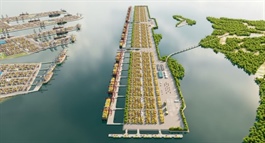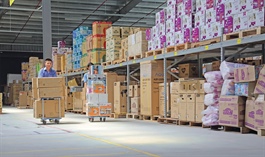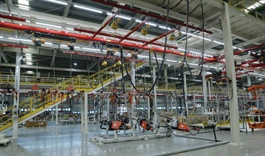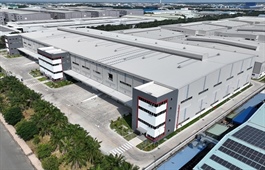Getting ready for the EU’s regulation on deforestation
Getting ready for the EU’s regulation on deforestation
Deforestation is a global concern. Almost 90 per cent of deforestation worldwide is caused by agricultural expansion. And a significant share of the agricultural commodities driving deforestation - such as cattle, cocoa, coffee, oil palm, rubber, soya, and wood - are traded internationally.
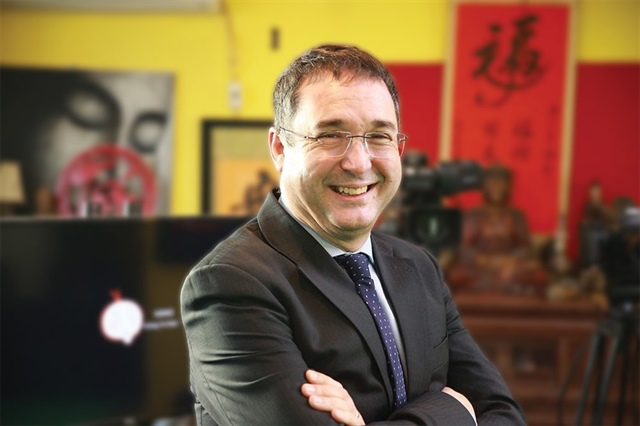
Dr. Rui Ludovino, First counsellor, Climate Action, Environment, Employment and Social Policies, Delegation of the European Union to Vietnam |
For this reason, the European Union introduced the Regulation on Deforestation-free products (EUDR). Entering into force in June 2023, this is a transformative approach in global efforts to combat deforestation.
To ensure its effective implementation, in December 2024, the European Council and Parliament agreed to delay the application of the EUDR until the end of 2025 for large and medium-sized companies, and July 2026 for micro and small enterprises. This delay does not change the substance of the regulation. Rather, it allows stakeholders more time to meet their due diligence obligations for deforestation-free products.
With the EUDR, the EU aims to minimise its contribution to global deforestation and forest degradation and, in turn, reduce its impact on climate change, greenhouse gas emissions, and biodiversity loss.
Vietnam is a major global exporter of timber, coffee, and rubber. As such, the EUDR presents both challenges and opportunities. For instance, adapting commercial operations to ensure the production of deforestation-free commodities will require adjustments, especially strengthening business due diligence systems. At the same time, however, it also offers the potential to improve Vietnam’s sustainability credentials and global competitiveness.
With the EUDR, the focus is shifting from voluntary action to a regulatory framework. Companies placing relevant products on or exporting from the EU market will be required to do due diligence. This includes ensuring products are deforestation-free after 2020, complying with national legislation, and providing geolocation data for production plots. The regulation targets operators and traders, not countries or producers. Therefore, Vietnamese enterprises will need to establish robust traceability systems and conduct due diligence to ensure their products meet EUDR requirements.
The regulation’s traceability requirements may pose a challenge in some situations. But they may also create important possibilities for others. For example, they offer significant opportunities for smallholders in third countries, such as Vietnam, by ensuring a more transparent and traceable value chain.
EU support for Vietnam
Meanwhile, by owning their geolocation data, smallholders will gain greater independence in the value chain, enabling direct relationships with suppliers and fairer pricing. Furthermore, the regulation will facilitate technical support and capacity building from business partners who depend on information exchange, helping smallholders and their cooperatives meet requirements.
The regulation is expected to increase demand for deforestation-free products, strengthening the position of producers working to achieve deforestation-free supply chains. Meanwhile, for smallholders struggling to access costly certifications, the focus on geolocation to provide assurance that their production is deforestation-free is an incentive. In addition, the EUDR will strengthen cooperation between the EU and its partner countries, such as Vietnam, aligning their shared interests and advancing sustainable and equitable supply chains worldwide.
Recognising the importance of the EUDR, the Vietnamese government is assisting stakeholders to build deforestation-free, legal supply chains. For instance, it is fostering collaboration among coffee, rubber, and timber actors to address challenges in these sectors. In doing so, the government is encouraging the development of sustainable and climate-adaptive agricultural products and demonstrating its dedication to building sustainable, deforestation-free supply chains that meet EUDR requirements.
The EU has introduced several measures to help stakeholders prepare for the implementation of the regulation. These include comprehensive guides, a detailed FAQ, the creation of the European Forest Observatory, and international dialogues designed to clarify regulatory requirements and encourage compliance. Meanwhile, under the Team Europe Initiative on Deforestation-free Value Chains, and with €80 million ($82.4 million) of funding, the EU and several of its member states are supporting supply chain actors to ensure deforestation-free value chain production in partner countries like Vietnam.
The EU remains a strong partner for Vietnam in navigating the regulation. Through the EUDR Engagement project, the EU Delegation to Vietnam is working closely with the Ministry of Agriculture and Rural Development (MARD) to facilitate communication and implementation.
Since its launch, the initiative has hosted technical exchanges, stakeholder meetings, and outreach events to prepare Vietnam to enhance the enabling framework for deforestation-free commodity production and improve the capacities of actors throughout the supply chain. Key milestones include a technical exchange in March 2024, outreach events in June, and discussions on traceability tools in November.
To support the transition under the EUDR Engagement initiative in the coming months, various activities have been planned. A major component involves further outreach and capacity building for a wide range of stakeholders. This will ensure a better understanding of the new regulation and provide a platform to discuss the implications for Vietnam among different partners.
Complementing wider efforts
Vietnam is also participating in the Sustainable Agriculture for Forest Ecosystems (SAFE) project. This global initiative is co-funded by the EU, the German Federal Ministry for Economic Cooperation and Development, and the Netherlands, and will run in Vietnam until 2027. In collaboration with MARD, SAFE Vietnam will support actors in the coffee value chain to meet market and legal requirements, fostering deforestation-free, legal supply chains.
At the core of its strategy, SAFE Vietnam aims to strengthen coordination between public and private sectors through multi-stakeholder dialogues and strategic EUDR action plans at both the national and local level. It equips authorities with essential expertise and practical tools to effectively enforce the new regulation. The initiative also encourages private sector involvement by fostering inclusive business partnerships that ensure transparency and innovation throughout the supply chain.
Moreover, SAFE Vietnam places significant emphasis on supporting smallholder farmers by enhancing their capacity to produce deforestation-free, legal commodities while also encouraging sustainable land and coffee production practices. Importantly, the initiative integrates gender and intersectionality into its approach. In particular, it addresses the concerns of marginalised groups preparing for EUDR and ensures a just transition that encourages equitable participation across the coffee supply chain.
In Vietnam, the EU is also financing projects to help actors align. Key initiatives include programmes by the French Development Agency and the European Forest Institute, which focus on capacity building, traceability systems, and sustainable land-use practices. These efforts complement broader EU support and provide critical resources for Vietnamese producers, enterprises, and authorities to strengthen their readiness for EUDR application, ensuring a smooth transition to deforestation-free supply chains.











